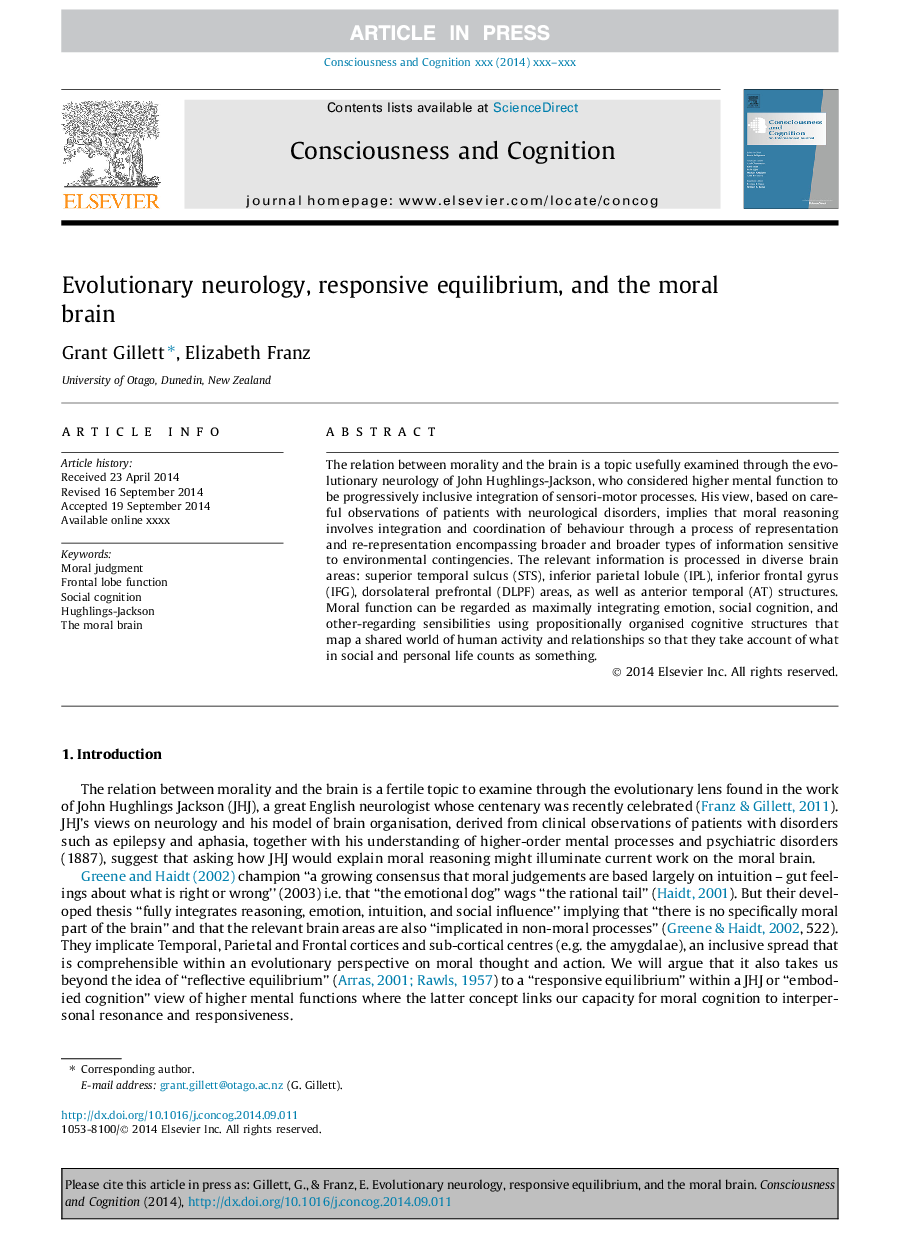| کد مقاله | کد نشریه | سال انتشار | مقاله انگلیسی | نسخه تمام متن |
|---|---|---|---|---|
| 7288290 | 1474166 | 2016 | 6 صفحه PDF | دانلود رایگان |
عنوان انگلیسی مقاله ISI
Evolutionary neurology, responsive equilibrium, and the moral brain
ترجمه فارسی عنوان
مغز و اعصاب تکاملی، تعادل پاسخگو و مغز اخلاقی
دانلود مقاله + سفارش ترجمه
دانلود مقاله ISI انگلیسی
رایگان برای ایرانیان
کلمات کلیدی
قضاوت اخلاقی، عملکرد لبه جلویی، شناخت اجتماعی، هوهلینگز-جکسون، مغز اخلاقی،
موضوعات مرتبط
علوم زیستی و بیوفناوری
علم عصب شناسی
علوم اعصاب شناختی
چکیده انگلیسی
The relation between morality and the brain is a topic usefully examined through the evolutionary neurology of John Hughlings-Jackson, who considered higher mental function to be progressively inclusive integration of sensori-motor processes. His view, based on careful observations of patients with neurological disorders, implies that moral reasoning involves integration and coordination of behaviour through a process of representation and re-representation encompassing broader and broader types of information sensitive to environmental contingencies. The relevant information is processed in diverse brain areas: superior temporal sulcus (STS), inferior parietal lobule (IPL), inferior frontal gyrus (IFG), dorsolateral prefrontal (DLPF) areas, as well as anterior temporal (AT) structures. Moral function can be regarded as maximally integrating emotion, social cognition, and other-regarding sensibilities using propositionally organised cognitive structures that map a shared world of human activity and relationships so that they take account of what in social and personal life counts as something.
ناشر
Database: Elsevier - ScienceDirect (ساینس دایرکت)
Journal: Consciousness and Cognition - Volume 45, October 2016, Pages 245-250
Journal: Consciousness and Cognition - Volume 45, October 2016, Pages 245-250
نویسندگان
Grant Gillett, Elizabeth Franz,
